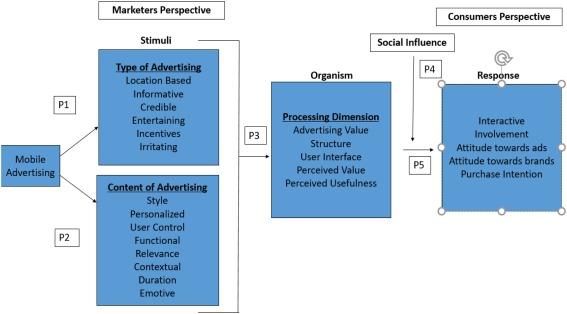Curriculum Manager: Key Responsibilities & Essential Skills for Success in Education Technology
Are you passionate about shaping the future of education technology at universities, colleges, or schools? the role of a Curriculum Manager is central to delivering effective learning experiences, ensuring rigorous academic standards, and harnessing the power of digital tools to improve student outcomes. This extensive guide delves into the key responsibilities,essential skills,and practical advice for aspiring Curriculum Managers eager to embark on a fulfilling career in EdTech.
Introduction: The Evolving Role of Curriculum Managers in EdTech
With the rapid advancement of educational technology, traditional learning environments are being transformed. Curriculum Managers play an increasingly crucial role in developing, implementing, and maintaining innovative curriculum solutions in universities, colleges, and schools. Their expertise ensures that academic programs remain relevant, inclusive, and responsive to the ever-changing educational landscape.
What is a Curriculum Manager?
A Curriculum Manager is a strategic leader responsible for overseeing curriculum advancement and instructional design. In education technology settings, they integrate digital learning platforms, adaptive content, and analytics to enhance teaching efficacy. This role directly impacts student achievement, faculty effectiveness, and institutional reputation.
Core Focus Areas of Curriculum Managers:
- Design and evaluation of curriculum frameworks
- Implementation of educational technology tools
- alignment of instructional materials with academic standards
- Professional development for teaching staff
- Continuous improvement based on student performance data
Key Responsibilities of a Curriculum Manager
Securing a position as a Curriculum manager in EdTech demands a deep understanding of both pedagogy and technology. Here are the principal responsibilities you will undertake in universities, colleges, or schools:
1. Curriculum Planning and Development
- Design curricula aligned with institutional goals and educational standards
- Integrate technological innovations such as e-learning platforms and interactive resources
- Collaborate with faculty to ensure diverse and inclusive educational content
- Regularly review and update curriculum to reflect current trends and research
2. Instructional Design & Resource Integration
- create engaging instructional materials using EdTech tools (LMS, digital textbooks, etc.)
- Utilize data analytics to personalize learning experiences
- Embed multimedia and gamification techniques to enhance interactivity
3. Training and Supporting Educators
- Lead professional development workshops on new technology and curriculum changes
- Coach faculty and staff on effective use of EdTech tools
- Provide ongoing support to educators during curriculum implementation
4. Quality Assurance and Evaluation
- Monitor and assess curriculum effectiveness through feedback and data analysis
- Adjust programs based on student learning outcomes and institutional assessment
- Maintain accreditation compliance and documentation
5. Collaboration and Stakeholder Engagement
- Work closely with academic departments, administrators, and IT specialists
- Gather input from students, parents, and community members
- Promote the curriculum’s value and impact through clear interaction
Essential Skills for Success as a Curriculum Manager
The effective Curriculum Manager is both a visionary and a practical strategist. Here are the indispensable skills that candidates must cultivate for success in education technology roles:
1. Instructional design Expertise
- Proficiency in creating and mapping learning objectives
- Knowledge of Worldwide Design for Learning (UDL)
- Mastery of curriculum mapping software and educational platforms
2. Technology literacy
- Experience with Learning Management Systems (LMS) like Canvas, Blackboard, or Moodle
- Ability to leverage analytics tools for student performance monitoring
- Familiarity with online content creation and multimedia integration
3. Project Management and Leadership
- Strong organizational and time management skills
- Ability to oversee multiple curriculum projects simultaneously
- Capacity to lead cross-functional teams and manage budgets
4. Communication and Interpersonal Skills
- Excellent written and verbal communication abilities
- Skill in facilitating workshops and training sessions
- empathy for diverse learning needs and collaboration with varied stakeholders
5. Data-Driven Decision Making
- Competence in analyzing student data to inform curriculum adjustments
- Use of formative and summative assessment strategies
6. Continuous Learning Attitude
- Keen interest in emerging EdTech trends and pedagogical innovations
- Commitment to professional growth and adaptation
Benefits of Pursuing a Career as a Curriculum Manager
Choosing the Curriculum Manager pathway offers a blend of personal satisfaction and career advancement in the field of education technology. here are some top benefits:
- High Impact: Directly influence academic success and institutional excellence
- Growth Potential: Expanding opportunities as EdTech integration increases
- Collaboration: Work alongside visionary educators and technology experts
- Innovation: Lead the adoption of new teaching tools and strategies
- Job Security: Critical role in modernizing education necessitates skilled professionals
Practical Tips for Aspiring Curriculum Managers in Education Technology
If you’re eager to land a Curriculum Manager job at a university,college,or school,strategic preparation is key. Follow these actionable tips to enhance your employability and excel in your career:
-
Gain Relevant Experience:
- Volunteer or intern in curriculum development or EdTech projects
- assist in faculty committees related to instructional innovation
-
Build Your Skills Portfolio:
- Take specialized courses in instructional design, data analytics, or project management
- Earn certifications in LMS technologies or curriculum development frameworks
-
Stay Informed:
- Subscribe to EdTech publications and attend educational technology conferences
- Network with professionals in higher education and K-12 settings
-
Highlight Achievements:
- Document case studies of triumphant curriculum initiatives
- Show measurable impact on student outcomes or process improvements
-
Demonstrate Adaptability:
- Be ready to embrace new technologies and pedagogical shifts
- Show willingness to innovate and experiment in curriculum design
Conclusion: Thriving as a Curriculum Manager in Education Technology
The role of the Curriculum Manager is both dynamic and rewarding, uniquely positioned at the nexus of academic excellence and technological progress. Whether you’re aiming for a job in a university, college, or school, mastery of key responsibilities and essential skills is essential. By embracing technology, fostering collaboration, and constantly refining your expertise, you’ll become an invaluable leader in the future of education. So, equip yourself with relevant experience, stay updated on industry trends, and step confidently into the transformative world of education technology as a Curriculum manager.

